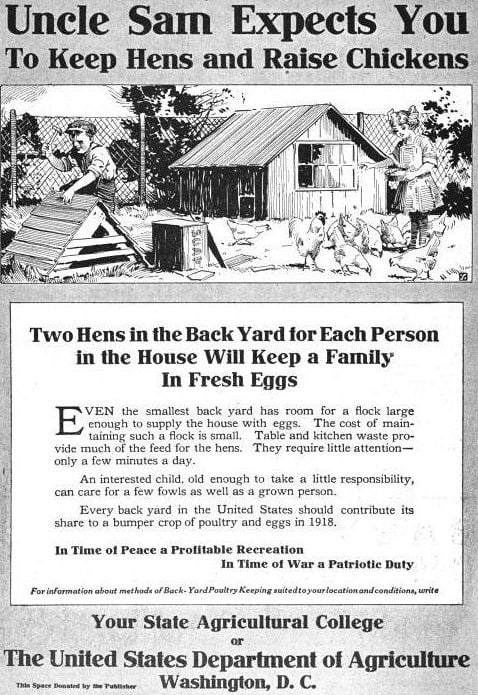To City Council and Aurora Sentinel:
Aurora
has long stood for American freedom and strong community. Both of these
are supported – surprisingly enough – by the keeping of backyard
chickens. During World War II, the keeping of hens was declared an act
of patriotism. Today it’s celebrated as trendy and sustainable by the
likes of Martha Stewart, Susan Orlean of the New York Times, and Food
Network’s Alton Brown. People who keep chickens in small urban gardens,
who follow local ordinances of keeping coops and runs clean and
protecting hens from predators, tend to be people who care for animals,
the earth, and their communities.
Arguments against hen keeping usually include noise, odor, and pest attraction. These concerns can easily be avoided by not permitting roosters, keeping coops clean, and well-designed coops.
Hens only vocalize for approximately 5 minutes after laying an egg and
make less noise than dogs or even human conversations. Well designed and
maintained coops and runs (i.e. with hardware cloth buried all the way
around to keep out foxes, etc.) reduce or eliminate pest and predator
problems. Proper sanitation – washing your hands after collecting eggs
or dealing with chickens, eliminates any health concerns.
Another common concern with allowing small flocks of urban hens (a maximum of six to eight hens
works for most families) is that there will be a greater cost to the
city and animal control. When Longmont recently legalized chickens, they
found these concerns to be unfounded. People who want to raise chickens
in their backyards for eggs are doing so (mostly) out of a sense
responsibility for taking control of their food sourcing and reducing
their carbon footprint. These are not the kinds of folks who'll be
requiring animal control to come out and bust chicken owners for too
many animals making too much noise.
There is one last concern that is rarely
addressed directly. Aurora fears being seen as a backwoods town. They
fear that allowing hens will turn the city into Farmville or possibly
Little Mexico. I’ve heard several racist comments about Mexicans and hen
keeping. Not only are these comments racist and inappropriate, the fact
is that regulating hen ownership – no roosters, small flocks, carefully
constructed coops – would eliminate most of the predicted problems and
give structure to remediation of unacceptable situations when necessary.
For instance, if there is a rooster wandering around the neighborhood,
the people responsible can be fined, the rooster removed, and others who
are keeping only hens in a sanitary and well-constructed situation can
continue to care for their animals in a non-disruptive manner. When
Councilmen Bob Broom said chickens weren’t compatible with Aurora
(quoted in the Denver Post), I suspect he was referring to these images
of hen keeping. Tell that to Martha Stewart, Barbara Streisand and Julia
Roberts, all of whom keep hens.
Commerce City, Denver, Longmont, Boulder,
Highlands Ranch, Centennial, Englewood, and Parker, to name a few cities
in the area, allow hens. It’s time we did too. It’s time we stood up
for being a free country, one that carefully and respectfully regulates
backyard hen keeping in support of sustainable communities.
Sincerely,
Clea Danaan Edelblute
and Aurora resident
~~~~~~~~~~~~~~~~~~~~~~~~~~~~~~~~~~~~~~~~~~~~~~~~~~~~~~~~~~~~~~
Addendum: Why Chickens?
Chickens
that are hand-raised from chicks can be wonderful pets. They come when
they are called, enjoy being held and are beautiful and even
affectionate pets.
Hens provide great-tasting, fresh, nutritious eggs for your family
In
fact studies show that compared to ordinary eggs, eggs from hens with
access to plants and bugs have less cholesterol and saturated fat, but
several times more beta carotene, Vitamin E, and omega-3 fatty acids.
They also have much more vitamin A, vitamin B-12, and folic acid.
Hens require little space to be happy and healthy; 3 hens can live a happy and healthy life in just 12 square feet.
Hen manure is a wonderful fertilizer which can provide you a healthy lawn without all of the chemicals
Hens love to eat the nasty bugs in your yard, including mosquitoes, slugs, ticks, and beetles just to name a few.
Chickens eat kitchen scraps and lawn clippings
Chickens help to keep these items out of landfills and turning them into healthy eggs.
Chicken keeping is educational. Backyard chickens provide lessons for children about responsibility and where food comes from.
Backyard chickens allow us to reduce our carbon footprint by producing some of our own food. Every
food item we can produce organically and on our own property is one
less item that must be shipped to us and shopped for. Every item of food
we raise ourselves represents a step in living a greener, more
sustainable, lifestyle.








